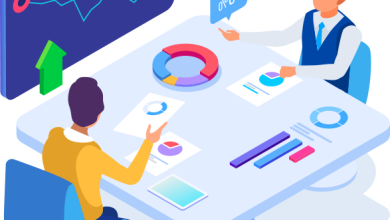What is Digital Health? List of Digital Health Apps

Digital Health App provides health-related information and assistance via software and smartphone applications. Medical information is now just a click away, due to the advancements .in information and technology
Digital health applications contains certain essential elements like wireless devices, hardware and software sensors, microprocessors and integrated circuits, the web , social networking mobile and body area networks, health IT, genomics and personal genetic information.
As alarming as these fatality rates may appear, digital health apps are working on reducing overdose deaths. There are a slew of digital health app available specifically to save lives in the event of an emergency. These applications act as a savior and provide medical assistance in the form of life-saving techniques and guides.
Why Digital Health Is Important?
1. Get useful insights on signs, symptoms, and causes of certain illnesses
2. Maintain your health records and monitor them through mobile applications or medical devices
3. Maintain patient records and history and acquire access whenever you’d like
4. Online consultation and appointments with doctors from around the globe.
5. Get life-saving advice and a guide to help you avoid overdosing in an emergency.
The advantages of digital health:
Digital health app offers the ability to help individuals monitor and manage chronic illnesses while also preventing disease and lowering healthcare expenses. It can also personalize medicine for each patient.
Advances in digital health can also benefit healthcare professionals. By greatly boosting access to health data and allowing individuals greater influence over their health, digital tools provide healthcare providers with a comprehensive perspective of their patients’ health. As a result, efficiency has increased and medical results have improved.
According to the website of the United States Food and Drug Administration (FDA), “Digital technology has been driving a revolution in health care, from mobile medical apps and software that support clinical decisions clinicians make every day to artificial intelligence and machine learning. Digital health tools have enormous potential for improving our ability to effectively identify and treat disease, as well as improving individual health care delivery.”
Furthermore, emerging technology such as cellphones, social networks, and internet applications provide patients with new opportunities to track their health and gain access to more information. According to the FDA, “Together, these breakthroughs are leading to a convergence of people, information, technology, and connectivity to improve health care and health outcomes.”
Digital health technology, according to the FDA, aid providers in reducing inefficiencies, improving access, lowering costs, improving quality, and making medication more individualized for patients. At the same time, digital health technologies and Symptom Checker make it easier for patients and consumers to monitor and track their health and wellness activities.
While innovations like virtual reality (VR) tools, wearable medical devices, telehealth, and 5G can improve patient care, AI-powered solutions can help medical practitioners optimize their workflows.
The challenges that come with Digital health:
Patients, medical professionals, technology developers, policymakers, and others are all affected by the digital transformation of healthcare. Data interoperability is a constant difficulty due to the large amounts of data collected from a range of systems that store and code data differently.
Additional obstacles include issues such as data storage, access, sharing, and ownership, as well as worries about digital literacy among patients and the ensuing unequal access to healthcare. As a result of these concerns, questions about security and privacy arise. What if, for example, companies or insurers wanted to get information from employees’ direct-to-consumer genetic testing results? What if medical equipment is hacked?
Technology and ethics are two further issues that need to be addressed. Who is accountable for mistakes made during surgery when medical robots are employed? For example: the hospital, the technology developer or manufacturer, the clinician who utilized the robot, or someone else?
List of Digital Health Apps:
There are a slew of digital health apps available specifically to save lives in the event of an emergency. These applications act as a savior and provide medical assistance in the form of life-saving techniques and guides.
Digital health encompasses an honest range of products and services. Digital devices and software are developed to diagnose diseases and there are even management and treatment apps; but it also includes clinical decision support systems, prevention and wellness, data generation through sensors and wearables, telemedicine then on.
iKeepr <b><a href=title=”Digital https://www.wizarticle.com/>Digital Health App</a></b> strives to help those who become unresponsive as a result of drugs. If the user does not respond to the app’s timer, it will automatically alert all emergency contacts by sending SMS. Furthermore, iKeepr also allows nearby people to respond to an emergency.
AliveCor
AliveCor turns your smartphone into an electrocardiogram by snapping onto the rear of any iPhone. To cater cardiac measurements, the user presses the device against the skin found near the center.
Diabetes Manager by WellDoc
This device works by capturing blood-glucose information and transmitting it in real-time. WellDoc’s system analyzes the data and offers a personalized coach to help patients manage their medication and treatment. It also promotes interaction between healthcare professionals and patients by assessing where users need help most.
Rimidi
Rimidi is designed to personalise the management of chronic conditions like diabetes, heart failure and cardiovascular disease.
Doctor Lucienne Ide created the clinical management platform in 2012 and partnered with Emory Healthcare last year for further app creations.
“They need data to really understand what procedures, devices and implants are leading to the best outcomes”, said Ide.
TestCard’s ClearScreen
The smartphone app uses a phone as a clinical-grade scanner, which can analyse lateral flow tests (LFD), removing the need for manual result recording.
TestCard’s ClearScreen provides a record for the NHS electronic patient records, in line with Public Health England’s reporting requirements.
Companiions
They say loneliness is a killer – and that’s something we’ve all learned over the pandemic. But with the Companiions app, users can find people in similar circumstances to them and strike up a friendship, such as:
- Families seeking companionship for an older relative
- New parents adjusting to parenthood
- People recovering from disease or surgery
Medical ID
Using the Medical ID app, users can send an alert SMS in one click which will include the users estimated location. Marketed as ‘The app that could save your life’, Medical ID can do more than that – you can also use the app to sign up to be an organ donor.
Lifesum
The Samsung Galaxy Watch4 series partnered with the Nutrition app Lifesum, to help users track their fitness progress, count steps and even analyse their sleep patterns.
“At Samsung, our mission is to create purposeful technology for a better world – and health is a major part of that”, said TaeJong Jay Yang, Corporate SVP and Head of Health Team, Mobile Communications Business at Samsung Electronics.
MyFitnessPal
For those who need to make a change, to those who just want to change one habit, the easy to use and all-rounder MyFitnessPal is the app of choice. MyFitnessPal helps users to monitor their daily food diaries, understand how habits can be improved and set achievable goals.
Siilo
Healthcare professionals support patients in the office and online, sometimes this leads professionals to use social media messaging to correspond with other doctors or patients, but these platforms are insecure.
“With Siilo, we have the unique opportunity to move away from the information silos that separate healthcare and focus on reconnecting the system for the betterment of professionals and patients everywhere”, says Siilo’s CEO, Joost Bruggeman.
To sum up, digital healthcare apps and other digital health innovations are assisting us in living better, safer, and more productive lives. In comparison to earlier forms of healthcare facilities, new connected mobile devices have become so impactful and significant that most advanced medical facilities equipped with the latest healthcare practices. These technologies inspire patients and care providers alike. Hence, it is safe to say that modern advancements have had a significant impact on the healthcare business as a whole.




